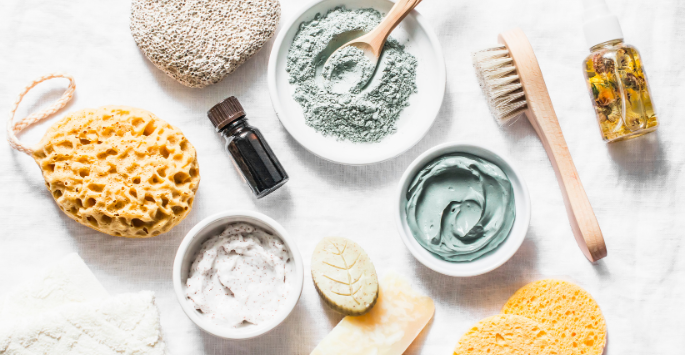
If you love skincare products as much as we do, chances are you probably saw at least one recipe today for a DIY face mask that was made from all natural ingredients found right in your kitchen. And you might've thought to yourself, "hey, it's all natural so it must be good for me!" High quality skincare products can be quite an investment depending on the brand, so we completely understand why the thought of making your own concoction of ingredients you already have at home could be appealing. But there are some pretty solid reasons (and some scary things lurking in those "natural" ingredients) that should give you pause before you grab your whisk and start mixing some homemade wrinkle cream.
IN SKINCARE, PRESERVATIVES ARE YOUR FRIEND
We've been taught all of our lives that consuming preservatives is bad, but preservatives in skincare are an essential ingredient. Preservatives guarantee that your product remains stable and lasts beyond one single use. Stable products keep bacteria, mold, and germs at bay, maintain the mixture and color of the product, and bind the ingredients together (if you see separated ingredients, that means the product lost its stability and should be tossed). It also keeps the ingredients fresh and odor-free for longer, and maintains the intended pH.
YOU NEED A STERILE ENVIRONMENT
The moment you blend that lemon or pumpkin into your mix, you're exposing yourself to all of the bacteria that was on both the fruit, your hands, and whatever utensils you used to blend it. This includes pesticides, allergens, and germs that were on the hands of everyone who handled that fruit. Professional skincare products are tested and created in sterile laboratories that we are unable to recreate at home, and simply rinsing off your fruit won't be enough to clear away all of the chemicals or germs. Reputable skincare companies stand behind their testing, ingredient sourcing, and most of all the safety of their products. So creating each one in a sterile environment and distributing it solely through doctors, plastic surgeons, or authorized skin health expert retailers is the process used to guarantee your product remains sterile and safe by the time it reaches you.
YOUR PRODUCTS NEED TO BE TESTED
This is another advantage that a laboratory full of scientists has over your kitchen: they have the tools to test the efficacy of each product, and most importantly, whether or not it's safe for use on skin. Unless you understand potential interactions with your ingredients and how much is needed to make a product effective, you're at best just wasting your ingredients, and at worst you're potentially harming your skin.
INGREDIENT DOSES ARE IMPORTANT
Simply juicing a lemon for retinol ingredients or adding sugar to your face scrub might seem like a great idea, but there are certain formulations you need to use to make sure you don't burn or damage your skin. Lemons are extremely acidic and using it can throw off your skin's pH balance. This can lead to bacteria overgrowth, blemishes, or (ouch!) burns. Acidic products like lemon can also cause photodermatitis when you go out in the sun, leading to burns, peeling, and scaly skin. Exfoliants like sugar can be highly abrasive with their jagged edges, causing superficial tears in skin that can lead to infection and probably won't be effective at exfoliating excess dirt and oil out of pores. Professional products do all the math for you, isolating the ingredients properly and making sure the texture is worked out perfectly so that it's safe when you apply it.

